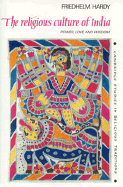Book contents
- Frontmatter
- Contents
- Illustrations
- Preface
- Power: the challenges of the external world
- Love: the rhythms of the interior world
- 9 The missing colour
- 10 The landscape of the heart
- 11 The deadly weapons of Mara
- 12 Beyond the fleeting moment
- 13 Cosmic desire
- 14 Love abiding in stone
- 15 The melting of the heart
- 16 Return to the world
- Wisdom: commuting within one world
- Notes
- Index
15 - The melting of the heart
from Love: the rhythms of the interior world
Published online by Cambridge University Press: 09 February 2010
- Frontmatter
- Contents
- Illustrations
- Preface
- Power: the challenges of the external world
- Love: the rhythms of the interior world
- 9 The missing colour
- 10 The landscape of the heart
- 11 The deadly weapons of Mara
- 12 Beyond the fleeting moment
- 13 Cosmic desire
- 14 Love abiding in stone
- 15 The melting of the heart
- 16 Return to the world
- Wisdom: commuting within one world
- Notes
- Index
Summary
There was a king called Ravivarman, and at some stage during his reign he decided to abdicate. Padmanābha took over as king, and Ravivarman continued as his minister. There are three points here that deserve to be noted as rather remarkable. First, kings do not normally like to give up the privileges of power. Secondly, the event I am referring to did not take place in the hoary past, but very much in the twentieth century. And thirdly, there is the person of King Padmanābha himself. Now this ‘Padmanābha’ happens to be Bhagavān Visnu, incarnated in stone in the enormous temple town of Trivandrum in Southern Kerala on the west coast of India. In the previous chapter we looked at how Bhagavān's love for the world expresses itself through innumerable manifestations among people, and how people react to his presence by constructing temples which use the royal court as one of their symbolic models. But in our present example, the symbolic has turned into a very concrete social and political reality: Padmanābha is quite literally the king of the state of Travancore. I shall not enter into the background to this rather amazing event; for all we know, to be the minister of a king who happens to be God was felt to be an ideologically more powerful, and politically more impressive or convincing role for Ravivarman than to be king in his own right.
- Type
- Chapter
- Information
- The Religious Culture of IndiaPower, Love and Wisdom, pp. 324 - 345Publisher: Cambridge University PressPrint publication year: 1994



